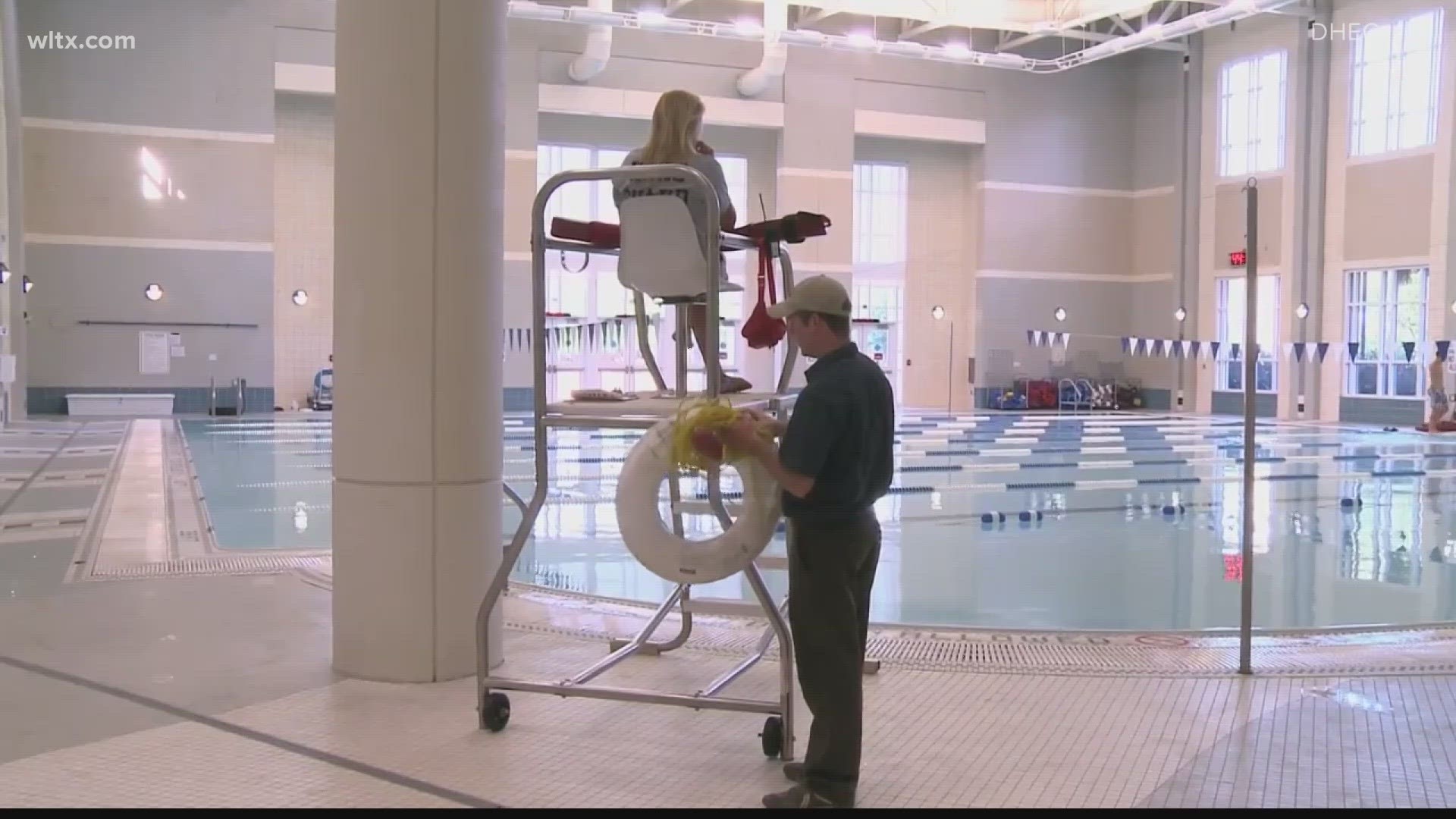COLUMBIA, S.C. — Summer is in full swing and while people are out enjoying swimming pools, state inspectors are busy making sure they’re up to code.
"If you have a pool, you have to maintain it. There’s no way around it," SOL Pools and Spas owner Jessica Kincade says. "As soon as you don’t, the water’s green."
The Columbia business helps private owners build and maintain their pools.
"This year alone we’ve had our busiest season," Kincade explains. "We started three, almost four years ago and we’ve doubled, and now this year we’ve seemed to triple."
As homeowners head out to the pool, other residents are turning to public pools to beat the heat.
The South Carolina Department of Health and Environmental Control performs routine inspections at least twice a year and says it’s checked more than 6,700 pools across the state this year.
Here in the Midlands, more than 500 inspections have been conducted in 2023. According to a DHEC representative, in Lexington, Richland, Newberry and Fairfield counties, nearly 70% of pools required at least temporary closure due to deficiencies identified during the inspection.
Across the state, DHEC says about 40% required at least temporary closure due to deficiencies.
DHEC uses a checklist when it surveys pools, making sure that water levels are balanced for the right amount of chlorine, bromine, and pH levels, which Kincade says is important, but has been pricey – until recently.
"During COVID [the price] kind of sky rocketed," Kincade explains. "I’m seeing in the trend, just purchasing from a big distributor, in the past I would say four months I’m starting to see a trend where we’re actually starting to drop in pricing again."
Water testing isn’t the only requirement DHEC inspects. It also checks for proper signage, drains and fencing, requiring pools to check 34 boxes in order to stay open.
"Multiple factors can cause a pool to be closed, each with their own time frame for correction and reopening," a DHEC representative says. "Some of the immediate closure items include: electrical shock hazards, suction outlet safety; unapproved modifications to public swimming pool; non compliant fencing/gates for preventing child access without adult supervision; previous non closure items not corrected; low or high chlorine, pH, and cyanuric acid levels; visibility of the main drains and quality of main drain covers; not having applicable safety equipment; not having a working emergency notification device on site for patron use; not having applicable required signs on site for patron notification; not maintaining daily chemistry readings and readings three times a week by a pool operator of record in their log book; not having the required disinfection, recirculation, filtration equipment to maintain the water chemistry and visibility."
Some of these items – like first aid kits and bathrooms – are on DHEC's list to check for, although the absence of these doesn’t necessarily require the pool’s closure.
DHEC tells News 19 that it’s up to the pool operator to make sure that the pool is up to code and says if a pool is closed, the facility can request an updated inspection once the problem is resolved.
DHEC says it aims to have a representative come out to re-inspect the pool within one business day.

